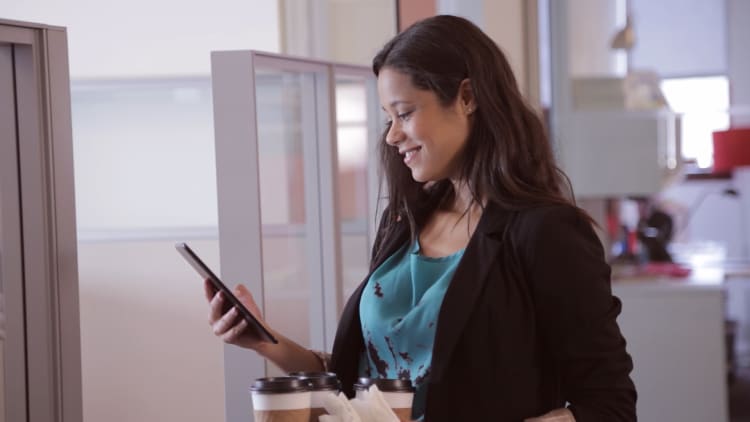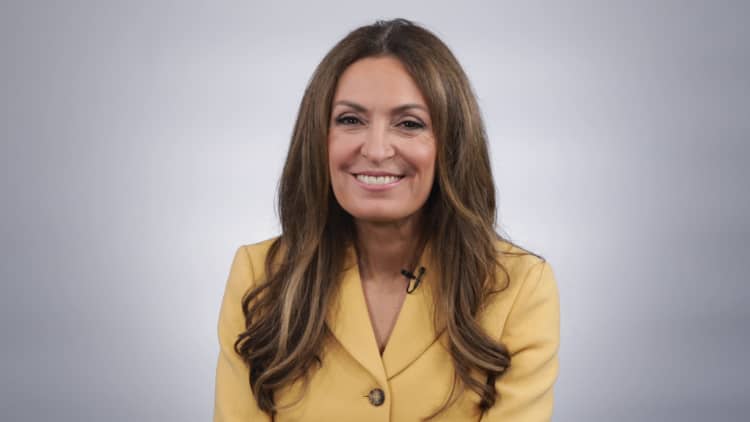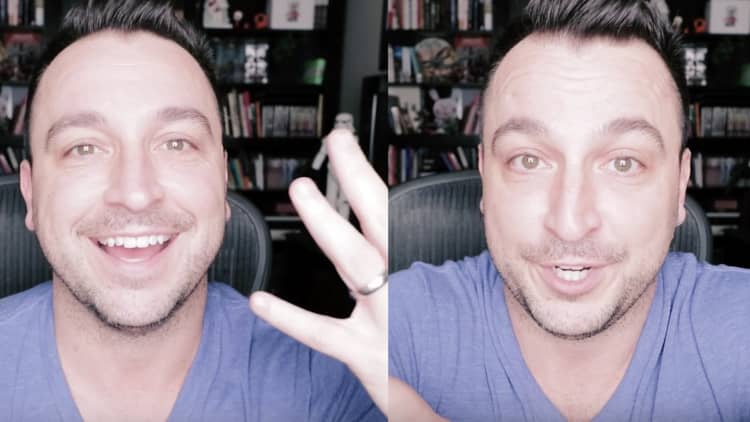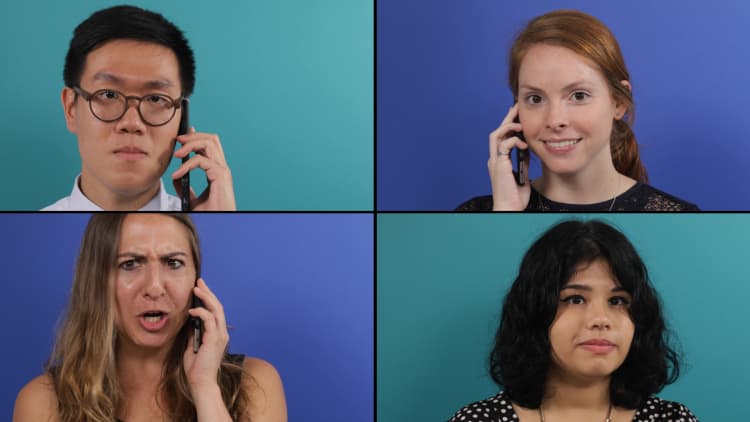For many millennials, talking on the phone is a lost art. Texting and email take precedence over actual conversations. In fact, one survey found that 74 percent of millennial respondents in the U.S. would rather send a text than talk.
But just because you may prefer to make plans with friends using emojis doesn't mean you don't need to know how to answer a call at work or ace a phone interview for a job.
CNBC Make It spoke with etiquette expert Kimberly Pope, founder of The Pope Institute for Polish, Poise and Etiquette, on the proper way to answer a phone and hold a professional conversation. Here are six guidelines to follow to keep your phone conversations friendly, succinct and productive. It's easier than you might think.
Introduce yourself
How you answer the phone is the key to a solid first impression. You want to be friendly and provide context for the caller right away. Pope suggests you say something like, "Hello, this is Kimberly of The Pope Institute," so that "the person on the end knows that they're calling the right person, as well as the right business."
Although a simple "hello," isn't wrong, it still leaves a lot unsaid, Pope points out. "You're leaving the other person on the end to ask other questions such as 'Hi, is so and so there?' or 'Is this XY business?'" It's better to put them at ease by getting the conversation rolling.
If you're the one making the call and the other person answers with a mere "hello," you can still achieve the same goal by saying something along the lines of, "Hi, this is Kimberly of The Pope Institute. I'm calling for Mr. Peterson."
Pope warns against dropping the salutation altogether, however. Forgoing a greeting in favor of something like "Kimberly here," makes it sound like you're picking up in the middle of a conversation and can turn the tone negative.
"'Hello' is a part of the greeting that is a courteous and thoughtful thing to do," Pope says. "When you say 'Kimberly here,' it becomes very informal very quickly."

Don't get too familiar
Pope says dropping formalities and quickly becoming too familiar with the person you're speaking with is the biggest phone etiquette mistake she sees people make. In professional situations, such as a job interview, it can steer things off course and make you appear unfocused.
"You still want to stay present in the fact that this is a business conversation," she says. When you get too familiar, it's easy to veer off-topic, and you want to be careful not to waste the other person's time.
Smile
When you're speaking on the phone, the other person can't read your body language, so your tone of voice becomes even more important. To help keep things upbeat, Pope recommends smiling while you talk.
"The act of smiling actually forces my tone to change," she says. "It's hard to go into a more aggressive manner or to stay too direct without at least having some pleasantness in your voice."
Putting a smile on your face not only affects your mood, it also helps bring your tone up a bit and sound more polite.

Stand up
Even though they can't see you, try standing up for your next phone interview. "Standing gives you more confidence, so you're able to project more confidence," Pope says.
Think about it: When you're standing and someone else is sitting, you feel more authoritative, like you have the upper hand.
"That's not to take over or come at the person, but it's something you do for yourself," Pope says. "When you're sitting, you're getting relaxed and you're losing the tone, losing focus." Standing does the opposite.
Take notes
Always keep a notepad handy while conducting a professional phone call so you're able to jot down important names, dates and facts, as well as insights that resonate with you and questions that arise.
During a job interview, being able to recall important facts and ask intelligent questions proves that you're paying attention and keeping your focus on the task at hand. "It shows that you were fully engaged and thoughtful when you were not just talking, but listening," Pope says.
Taking good notes can also help you avoid embarrassing missteps. Pope remembers an instance in college when she had an interview over the phone. She forgot her interviewer's name and tried to make up for it by guessing — but she guessed wrong.
"That right there shows that I was not really in the moment when the person greeted me, so I missed the opportunity to really make a connection with that person," she says. Jotting down key facts could have helped her salvage the interview.

Remember the principles of etiquette
No matter what, remember that basic politeness goes a long way. Pope boils down the principles of etiquette into three themes: consideration, respect and honesty.
Here's a closer look at each.
- Consideration: When taking a phone call, always be considerate of the person on the other end of the line (Are you using your time with them well?) as well as those around you (Are you going to be disturbing other people?).
- Respect: Be mindful of the other person's time, be fully engaged in the conversation and try to develop a rapport. "Be thoughtful in your responses and have that back and forth," Pope says.
- Honesty: Above all, be sincere. Pope thinks back to the time she forgot her interviewer's name. Had she come clean about it, she could have avoided embarrassing herself and gotten a lot further with the conversation.
Don't miss:
- Experts everywhere tell you to buy a home—here's why they're wrong
- Here's where the super rich keep their money
- The No. 1 mistake Americans make when saving for retirement
Like this story? Like CNBC Make It on Facebook!




